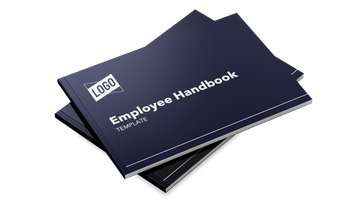HR Headaches: Is It OK to Drink Alcohol at a Work Lunch?

Table of contents
- 1.How widespread is alcohol use at work?
- 2.The risks of working while impaired
- 3.Drafting a policy
- 4.Exceptions to the rule?
- 5.Parties or celebrations
- 6.Events with clients or donors
The days of the normal 3 martini lunch may be over, but is drinking at lunch still a thing? Your company probably isn’t a reflection of Mad Men — with alcohol carts in every office, a toast for every achievement, and a swig for every problem, but drinking on the clock may be occurring under the radar. Companies prohibit drug use while on the job, but not all include alcohol in their policy. They may worry there are instances when alcohol consumption may be the norm, like business lunches and holiday parties. There may be clear exceptions to the rule, but a policy should be in place that prohibits consumption of anything that has the potential to impair the employee’s ability to work safely and effectively. Unless your staff consists of brewmasters, bartenders, sommeliers, or high-ticket representatives wining and dining prospective clients or donors, working under the influence puts employees, their colleagues, and the business at risk. Many organizations have changed drug policies to prohibit working while impaired. With legislation across the country shifting, many companies are concerned about having a policy prohibiting the use of a now legal substance: the same applies to alcohol. Your policy should bar employees from working, and putting themselves and others at risk, while impaired — whether the cause of their impairment is a legal or illegal substance.
How widespread is alcohol use at work?
You may think it’s not happening at your company, but a recent eye-opening survey of 2,000 people found a good percentage of workers are drinking on the job.
- 34% admit drinking alcohol during work hours
- 32% said they were more likely to drink during work hours since COVID-19
- 26% choose beer
- 30% are drinking liquor
- 67% of workers in Alaska admit to drinking on the clock; Maine at 60%; Oklahoma and New Mexico over 50%
The lowest admitted alcohol consumption in the United States was in Nebraska, but even there 13% of employees said they drink on the job. It may very well be occurring at your company, too.
The risks of working while impaired
The National Clearinghouse for Alcohol and Drug Information (NCADI) puts the cost of alcohol and drug-related abuse to business in injuries, increased health insurance claims, and lost productivity at $100 billion a year. Their statistics show impaired workers are less productive, take 3 times as many sick days, are more likely to harm themselves or others, and are 5 times more likely to file a workers’ compensation claim. One study found managers more likely to drink on the job than frontline workers. Twenty-three percent of upper managers and 11% of frontline supervisors reported drinking during the workday, compared to 8% of hourly employees. The U.S. Department of Labor reports 65% of on-the-job accidents are the result of drug or alcohol use at work. Another 38 to 50% of workers’ comp claims are related to working while impaired.
Drafting a policy
Working while impaired, because of a single beer at lunch or an afternoon of partying, puts employees at risk. Creating a policy that either prohibits working while impaired or specifically outlines when alcohol consumption is allowed is necessary to protect workers and shield organizations from risk and liability. Your policy for alcohol or drugs, whether legal or illicit, should outline that working while impaired is prohibited regardless of the substance consumed. Employees who use medical drugs that have an adverse effect on their cognitive or physical abilities pose as high a risk as those who abuse recreational substances. The goal is workplace safety, not delineating what drugs or drinks are allowed or prohibited. Make sure to clearly outline that exceptions will not be made for legal, illegal, or even prescribed substances. The policy should state that working while under the influence of drugs and/or alcohol puts the employee, their coworkers, and the company at risk. A zero tolerance policy must be applied for every category of worker, from the front line to the C-suite.
Exceptions to the rule?
If you’re managing a cutting-edge hipster business, free beers at lunch might be the norm. You may want to put a cap on how many can be consumed, but understand that your approval, either actual or tacit, can put your business at risk if there’s an accident on the property, or possibly even off-site. If you allow your employees to drink at work, then they drive home and cause an accident, there may be a causal relationship to be made. Employees that require medicine that could impair their ability must be required to provide a medical release form from a physician that stipulates what types of work they can safely perform. Without that release, employees who use prescription medicines that can impair their abilities should be assigned light or reduced-duty tasks, if available.
Parties or celebrations
If you allow the occasional imbibing at parties or celebrations, you’ll want to assure employees have a means to get home safely in the event they overindulge. Have ride-share companies on stand-by and ask employees to notify someone in charge when/if someone should be driven home, rather than drive or take public transportation.
Events with clients or donors
For luncheons and dinners that involve clients or donors, you’ll want to allow a modest amount of drinking. Outline that employees represent the organization at these meetings, and are expected to keep drinking to a minimum and comport themselves appropriately. If the guest is drinking, they may feel free to do so, within limits. If the guest is not drinking, neither should they. Again, stress that employees don’t put themselves or others in harm’s way. Your policy should outline that staff members take taxis or ride-shares after the event if they’ve been drinking for company business. A best practice, if staff members frequently have to drink on the job, would be to create a company rideshare or driver’s service account. That way the cost of transportation goes to the employer, putting less of a burden on the staffer. Additionally, providing such a service may limit your liability in the event an accident occurs. Should you allow drinking alcohol during lunch? A quick answer is probably no, but there may be situations where it’s called for. Hedge your bets with a clear policy that outlines when/if drinking is allowed, how it should be kept to a minimum, and that employees should never work or drive if impaired. Outside those specific stipulations, consumption of drugs or alcohol while on the clock, or during lunch if the employee intends to return to work for the remainder of their shift, should be prohibited.

Riia O'Donnell
Table of contents
- 1.How widespread is alcohol use at work?
- 2.The risks of working while impaired
- 3.Drafting a policy
- 4.Exceptions to the rule?
- 5.Parties or celebrations
- 6.Events with clients or donors






